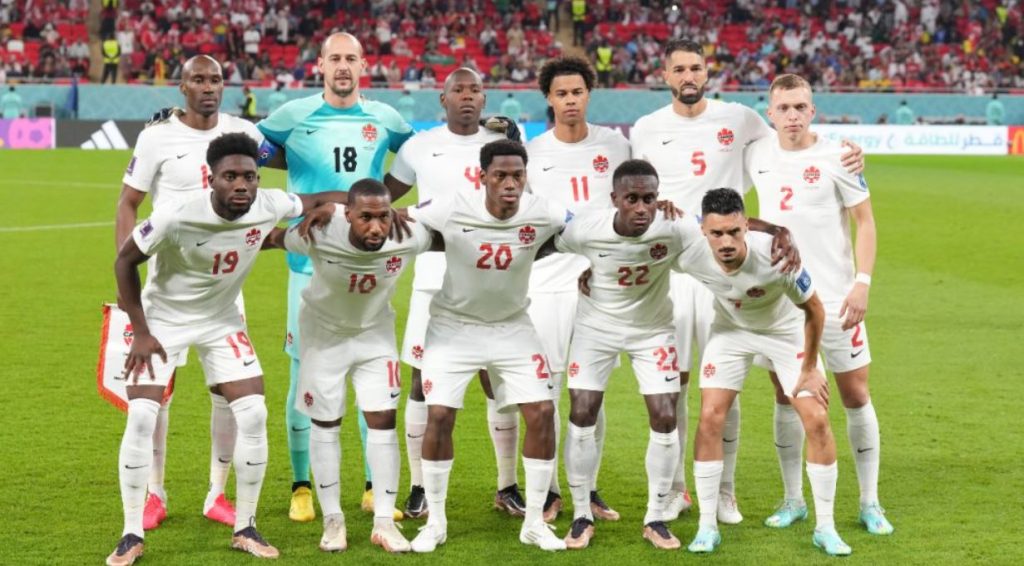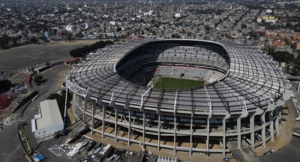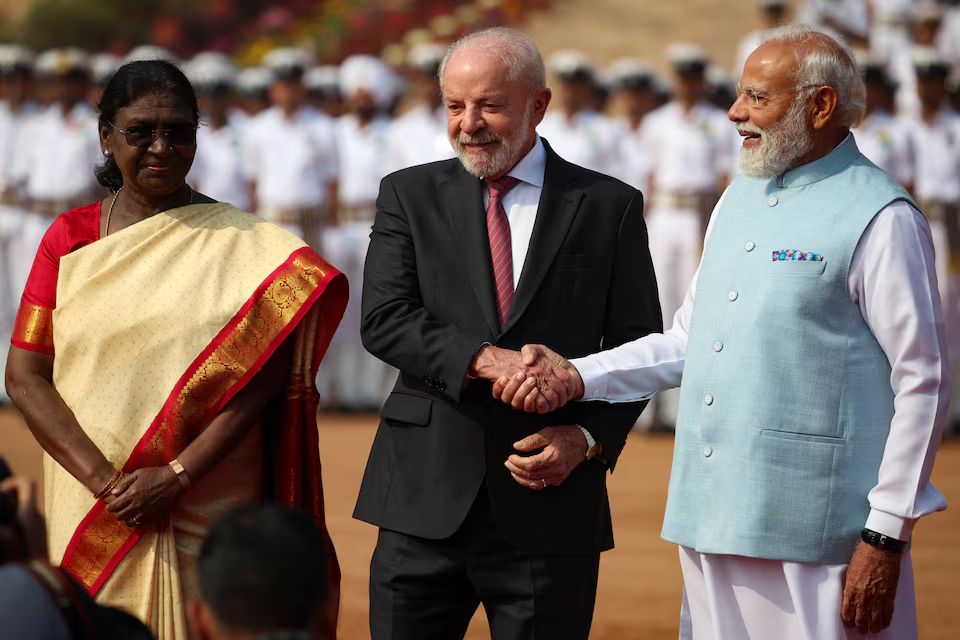
FIFA partially fleshed out the road map for the 2026 World Cup on Sunday, revealing Canada and Mexico will each host 13 games with the U.S. staging the remaining 78.
With 45 countries yet to qualify for the men’s soccer showcase, the full picture won’t emerge until the tournament draw in early December 2025. But Sunday’s televised reveal attached cities to dates as well as concrete information on the three co-hosts’ schedule during the opening group phase.
Mexico, currently ranked 15th in the world, will kick off the expanded 48-team tournament on June 11 at Mexico City’s Azteca Stadium, with a second game later that day in Guadalajara.
No. 48 Canada will open at Toronto’s BMO Field on June 12.
“A great city which has a great football or soccer tradition,” said FIFA president Gianni Infantino.
The 12th-ranked Americans start their campaign the same day at SoFi Stadium in Inglewood, Calif.
Canada will stage 10 opening-round games — split evenly between Toronto and Vancouver, which will host Canada’s two other opening-round matches June 18 and 24 at B.C. Place Stadium.
“We’ve had a lot of success in that stadium, especially in World Cup qualifying,” interim Canada coach Mauro Biello said of BMO Field.
Biello said he was looking forward to the “energy” of B.C. Place.
“It’s important to be coast-to-coast and allow fans to see their team and be able to see this type of competition,” he said of the opening-round travel.
Toronto and Vancouver will each stage a round-of-32 knockout game with Vancouver also hosting a round-of-16 match.
Vancouver likely gets one more game than Toronto because it offers a bigger venue. Capacity at B.C. Place for the tournament will be 54,000 while BMO Field, once extra seats are added, will accommodate 45,000.
The U.S. will face less early travel than Canada with a June 19 game at Seattle’s Lumen Field between June 12 and 25 dates at SoFi Stadium in Inglewood, Calif.
Mexico will play June 11 and 24 games in Mexico City sandwiched around a July 18 match in Guadalajara, a mere 460 kilometres away.
The 48 teams will be divided into 12 groups for the opening round-robin stage. The group winners and runners-up, plus the eight best third-place teams, will advance to the knockout round of 32.
Success in the group stage means a more benign schedule in terms of travel and rest when compared with the runners-8- and third-place teams than advance.
Should Canada win its group, it would stay in Vancouver for the round-of-32 game and, if it wins that, stay put for the round-of-16 contest. The Canadian men are still looking for their first World Cup win, however, after losing all three matches in both 1986 in Mexico and in 2022 in Qatar.
The tournament quarterfinals are set for Boston, Kansas City, Los Angeles and Miami with the semifinals in Atlanta and Dallas.
The championship game is scheduled for July 19 at MetLife Stadium in East Rutherford, N.J. with the bronze-medal match at Hard Rock Stadium in Miami Gardens, Fla.
The 2026 tournament was initially planned for 80 games, with the U.S. expected to host 60 and Canada and the U.S, getting 10 apiece. The group phase was subsequently enlarged, adding an additional 24 games.
There are 16 host cities — two in Canada, three in Mexico and the rest in the U.S. AT&T Stadium in Arlington, Texas, will host the most with nine.
The televised reveal, streamed around the world by FIFA, was co-hosted by actor Kevin Hart also included a cameo by Drake, in conversation with Infantino.
While the Toronto rapper is known more for his love of hoops than the beautiful game, he has connections with the Canadian men’s team and has hung out with them when they are in town. During the schedule reveal show, Drake talked up Canada’s and Toronto’s multicultural population, calling the World Cup a “beautiful time” in the city.
Mexico will become the first country to stage the FIFA men’s World Cup for a third time after hosting in 1970 and 1986. The U.S. hosted the 1994 tournament.
Canada has never hosted the men’s World Cup although it tried to get the 1986 edition after Colombia, the original choice, said it could not stage the tournament for financial reasons. Canada, the U.S. and Mexico all submitted bids to be the replacement host with Mexico eventually being chosen by FIFA, much to the ire of Canada and the U.S.
Canada hosted the 2015 Women’s World Cup, as well as other age-group world championships.
World Cup qualifying has already started in CONMEBOL (South America), the AFC (Asia) and CAF (Africa).
CONCACAF, which covers North and Central America and the Caribbean, kicks off qualifying next month while the Oceania Football Confederation (OFC) begins in September. UEFA (Europe) starts in March 2025.
CONCACAF could send as many as eight teams to the expanded World Cup. Three teams will join the tournament co-hosts via regional qualifying with two more bidding to join them via intercontinental playoffs.
FIFA awarded the 2026 hosting rights to the three co-hosts on June 13, 2018, at a meeting of the FIFA Congress in Mexico. The so-called united bid received 134 of 200 votes case (67 percent) while Morocco got 65 votes (33 percent) with one member association voting not to choose either bid.
2026 World Cup Games in Canada
Toronto, BMO Field







